Climate Impact Modelling
In cooperation with the Leibniz Institute of Ecological Urban and Regional Development, the following project focuses on the climate impact.
We are assessing future flood risks using climate change as the driver for the entire flood risk chain comprising atmospheric, hydrological, hydrodynamic, and damage processes. Using multi-model applications, the climate change signal is routed through every component of the risk chain and uncertainties stemming from climate scenarios, climate models and hydrological parametrisations are identified and quantified.
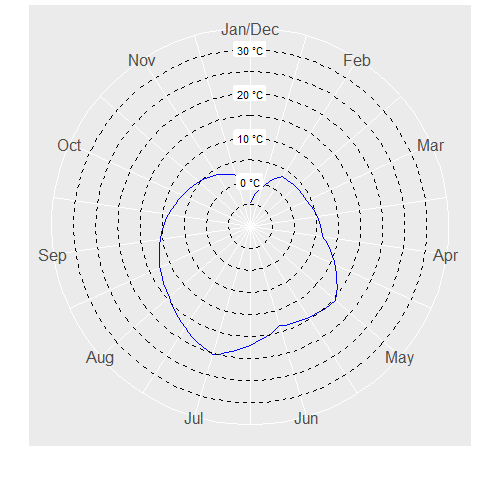

Different climate change ensembles serve as input for long-term high-resolution hydrological modelling to detect future flood events. Inundation maps are derived using 2-dimensional hydrodynamic modelling. Damage estimation covers construction and inventory damage. Transient risk curves, including uncertainty bounds, are derived.
Due to the high-resolution in space and time, high performance computing is applied. Performance testing is crucial to run a comprehensive model chain. A special challenge is the coupling of the model chain, since different system requirements have to be coordinated.
Visual data analytics is used to provide support in understanding the processes responsible for flood risk generation in a flood risk system.
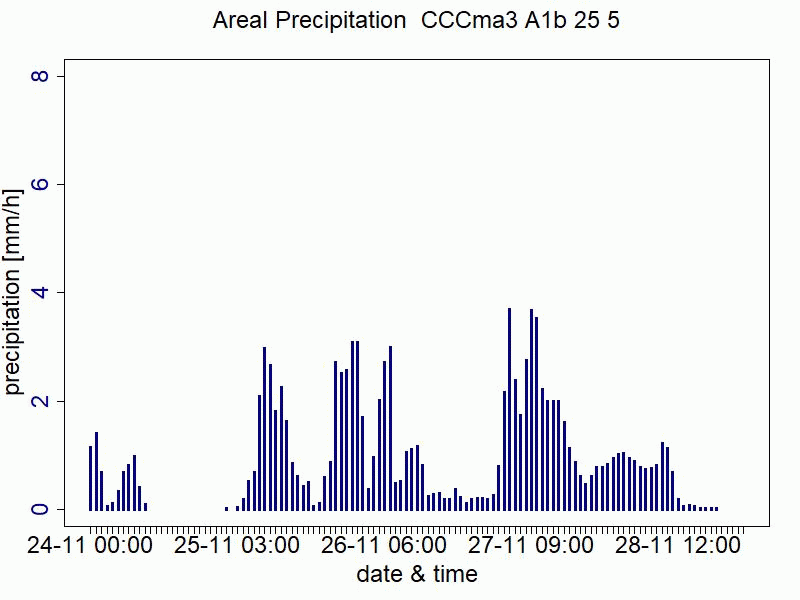
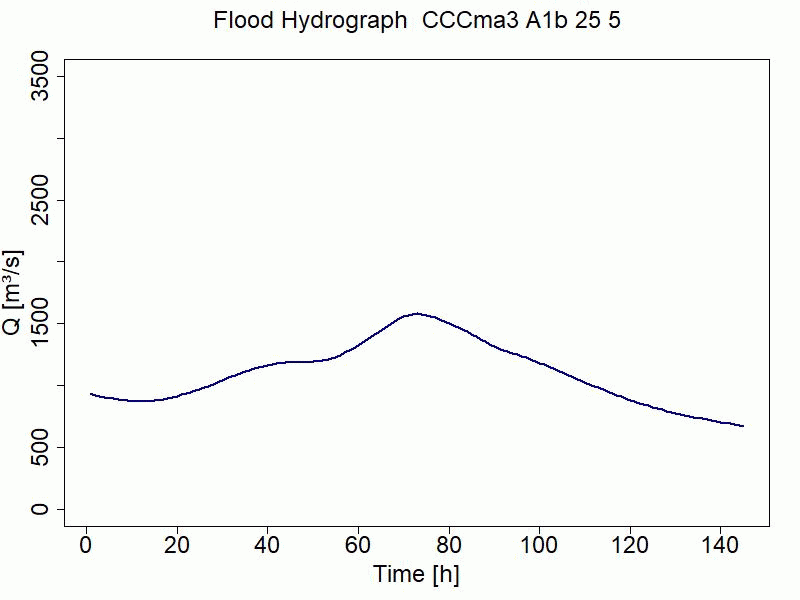
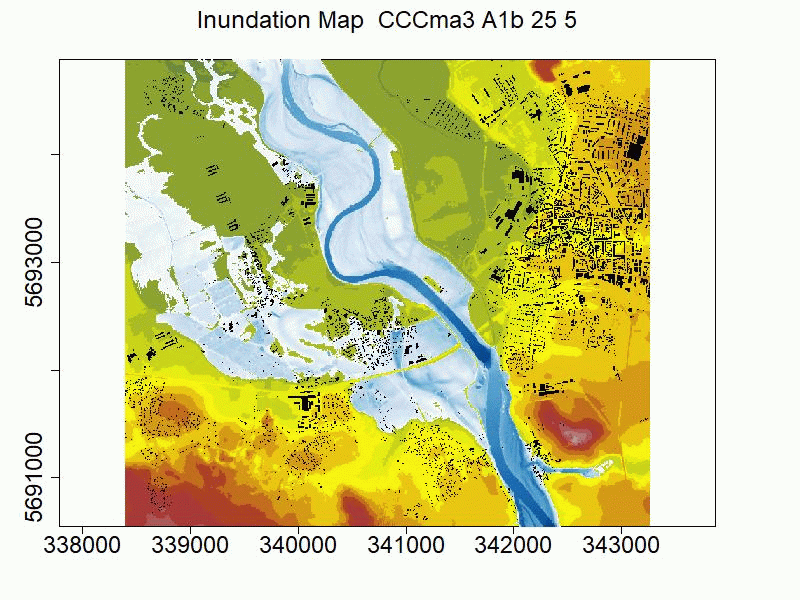
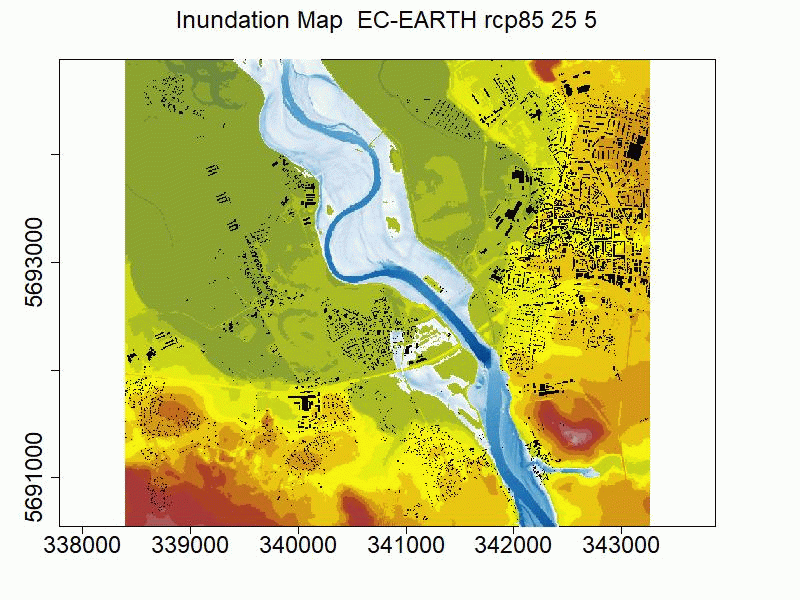
Development of flooding in different simulations



